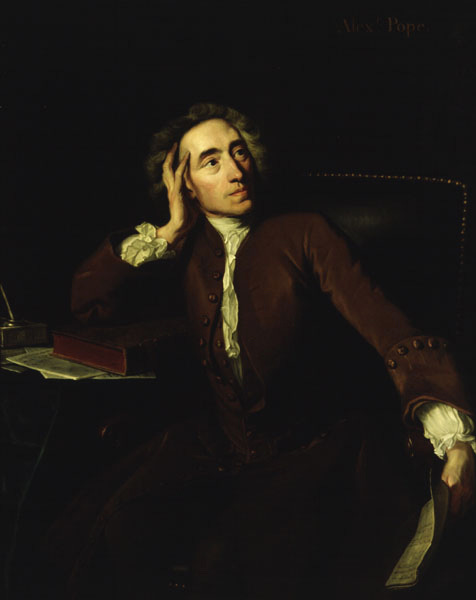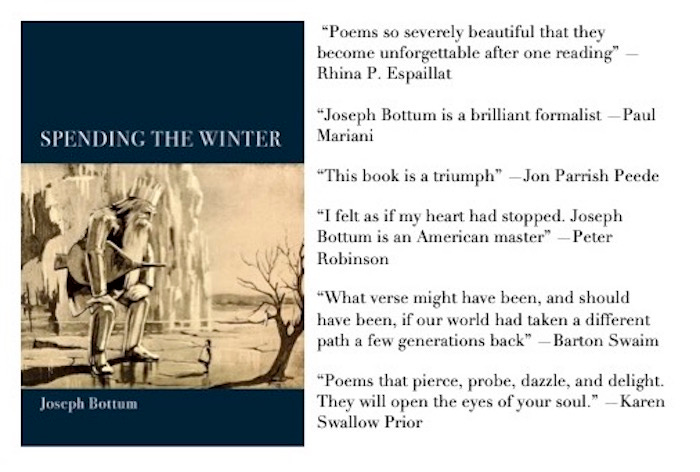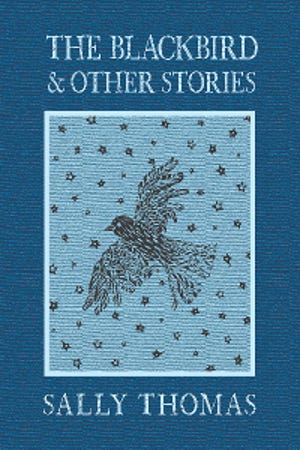
Ode on Solitude
by Alexander Pope
Happy the man, whose wish and care
A few paternal acres bound,
Content to breathe his native air,
In his own ground.
Whose herds with milk, whose fields with bread,
Whose flocks supply him with attire,
Whose trees in summer yield him shade,
In winter fire.
Blest, who can unconcernedly find
Hours, days, and years slide soft away,
In health of body, peace of mind,
Quiet by day,
Sound sleep by night; study and ease,
Together mixed; sweet recreation;
And innocence, which most does please,
With meditation.
Thus let me live, unseen, unknown;
Thus unlamented let me die;
Steal from the world, and not a stone
Tell where I lie.
═════════════════════════The beauty of the quiet life has been a poetic theme since at least Horace and his Sabine farm: the quietude of unambition, the pleasure of anonymity, and the ease of unremarked death.
Given that Alexander Pope (1688–1744) would lead as public a life as anyone in his time, one easily suspects that “Ode on Solitude,” his early praise of the quiet life, was more a poetic pose than a genuine belief. Such a pose is certainly well woven into the poetic tradition, as we noted last year when we looked at Henry Timrod’s 19th-century poem “Retirement”: “come! and we will build / A wall of quiet thought, and gentle books, / Betwixt us and the hard and bitter world.”
That theme of stripped-down simplicity wouldn’t die. It’s in Thomas Gray’s 1751 “Elegy Written in a Country Churchyard.” And Emily Dickinson’s “How happy is the little stone / That rambles in the road alone,” because it “doesn’t care about careers, / And exigencies never fears.” Bene vixit, bene qui latuit: “He lives well who is well hidden” (a tag adapted from Ovid that Descartes took as his motto while not, in fact, remaining well hidden). Il faut cultiver notre jardin, “We must cultivate our garden,” as the non-garden-dwelling Voltaire concludes Candide.
In other words, we could take Pope as merely indulging the trope of retirement. But here near the poet’s May 21 birthday, “Ode on Solitude” might also prompt some other thoughts — beginning with what life experience, what beyond a prodigy’s knowledge of common poetic themes, we demand from the young. Pope was only twelve years old when he wrote the poem, and his command of verse at that age is simply astonishing.

Written in five quatrains of mostly iambic tetrameter, rhymed abab, with a shortened last line, the poem shows its skill at iambic verse. We see inverted first feet that give a choriambic effect: HÀP-py the MÀN (STRÒNG-weak-weak-STRÒNG). We get long syllables on off-beats to slow the phrase down, as in the alliteration of YÈARS slide SÒFT. We find an inversion following a pause: STÙD-y and ÈASE.
Pope also ends each stanza with a line truncated to two feet. You can see the same pattern in, for example, in John Keats’s 1819/1820 “La Belle Dame sans Merci” (without the rhyme on lines 1 and 3), and it’s an effect I have always found moving — lending a sapphic kind of dying fall to the last line:
And this is why I sojourn here,
Alone and palely loitering,
Though the sedge is withered from the lake,
And no birds sing.
There have been other child prodigies in poetry, of course — although not anywhere near as many as in mathematics, chess, and music, for reasons that would be interesting to explore. We’ve presented verse by William Cullen Bryant (1794–1878), who published his first poem at age 10, and Nathalia Crane (1913–1998), the Brooklyn girl poet. Phyllis Wheatley (c. 1753–1784) is often mentioned in this context, along with perhaps the best example of a meteoric young writer who flashed once across the sky, Arthur Rimbaud (1854–1891).
In Pope’s case, some elements of his biography might touch on the burden of the poem. Ambition is an uneasy thing, and bright little boys on the edge of exploding on the world know its ambiguities. But, more, it was in his twelfth year that Pope’s parents left London, unable to bear the pressure of anti-Catholicism in such forms as the Test Acts (prohibiting schooling for Papists) and a sometimes-enforced law barring Catholics from living within ten miles of London or Westminster. In 1700 the family moved to Popeswood, a village near Binfield in Berkshire. (It was this area Pope would describe in his long 1713 poem Windsor-Forest.) And however the brilliant boy actually felt about the thought of having to flee London, he may be making the best of it in “Ode on Solitude.”
Then, too, age twelve is when some of his health problems manifested themselves, including the tuberculosis that deformed his spine and stunted his growth. For the sickly boy, the country may have felt the proper place to contemplating the shedding of ambition and learning just to be: “Thus let me live, unseen, unknown.”






Spoke to me as I age into my mid eighties.
Twelve years old? Oh my. So a conventional trope, not unlike a young Milton lamenting his 23rd birthday and thinking his life is over. Or perhaps we should change media and think of an equally young Mendelssohn. We marvel at such young gifts, much as we marvel at those recent high school graduates, whose promise is like the bright green of April, knowing that it must deepen and grow to the darker, thicker green of July and August.